Classrooms without walls, outdoor education: changing the landscape of education
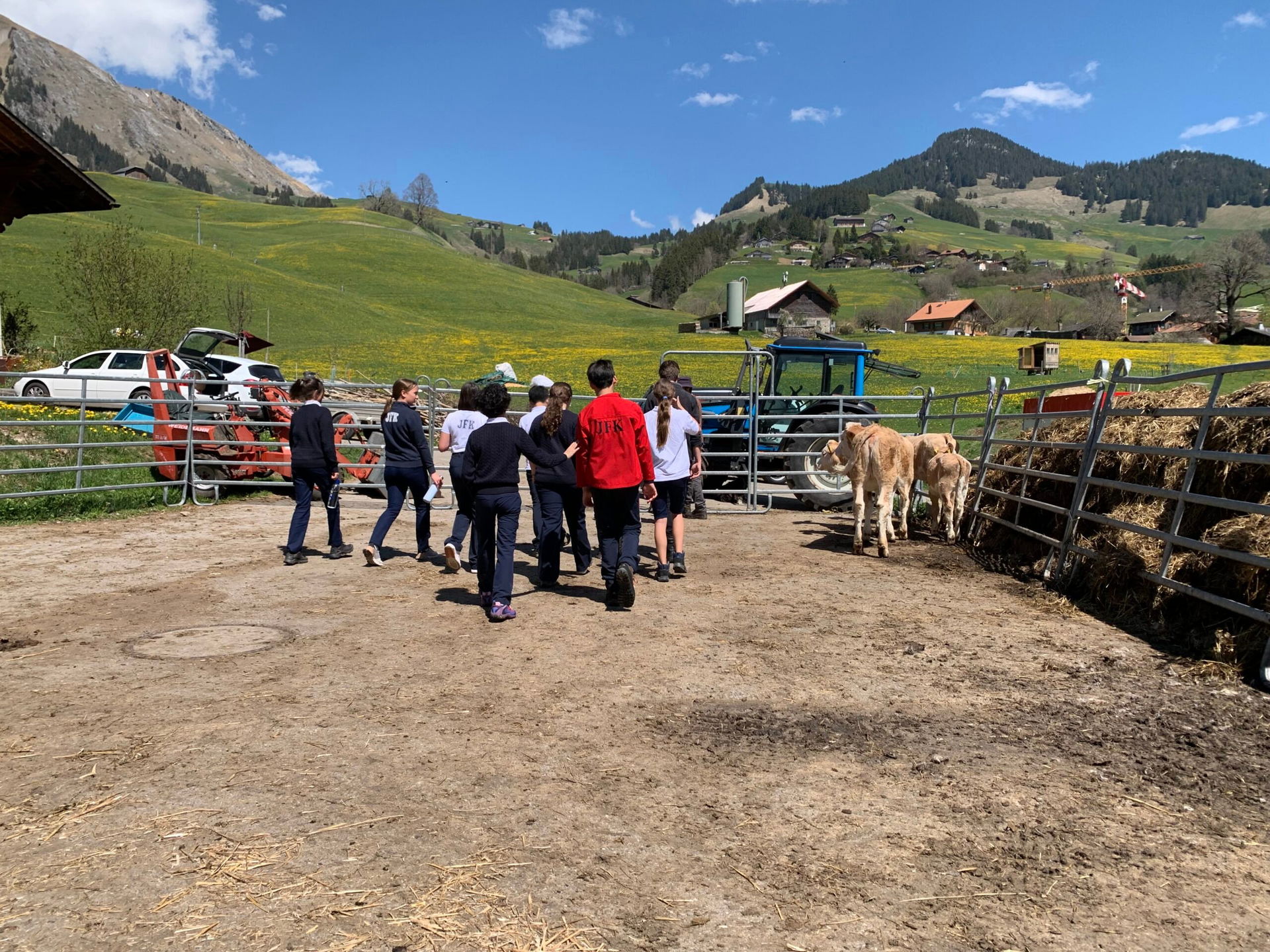
How a small international school in Switzerland is changing the learning and teaching paradigm through education, local sustainability, eco projects, and industry.
Two years ago, John F Kennedy International School supported a local initiative by Esther Mottier in Château-d’Oex, Switzerland. The project aimed to educate children and communities on the importance of sustainable living and preserving the environment. Since collaborating in 2020, JFK students have adapted their education to focus on the impact of biodiversity and sustainable living on themselves, their community, and the world.
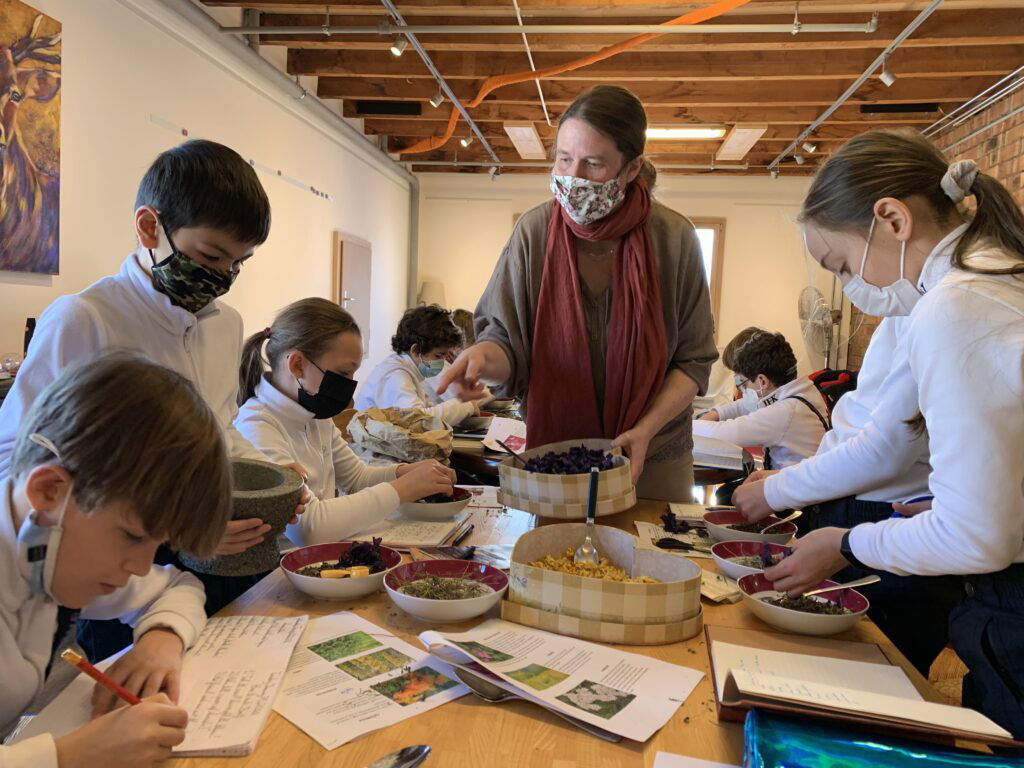
In 2015, the United Nations established the Sustainable Development Goals (SDGs) to reduce the impact of climate change. JFK’s educational leaders recognised that even a small school could support this global vision. They believe that it is vital for students to understand the impact of their actions on the planet and that participating in and experiencing positive change can foster resilience and empowerment. Additionally, JFK School’s location in a beautiful natural setting prompted them to incorporate nature into students’ learning and teach them about climate change’s impact and sustainability on the local region.
JFK has also collaborated with Votre Cercle de Vie to develop students’ critical thinking, resilience, and flexibility to better prepare them for global challenges such as climate change and AI technology.
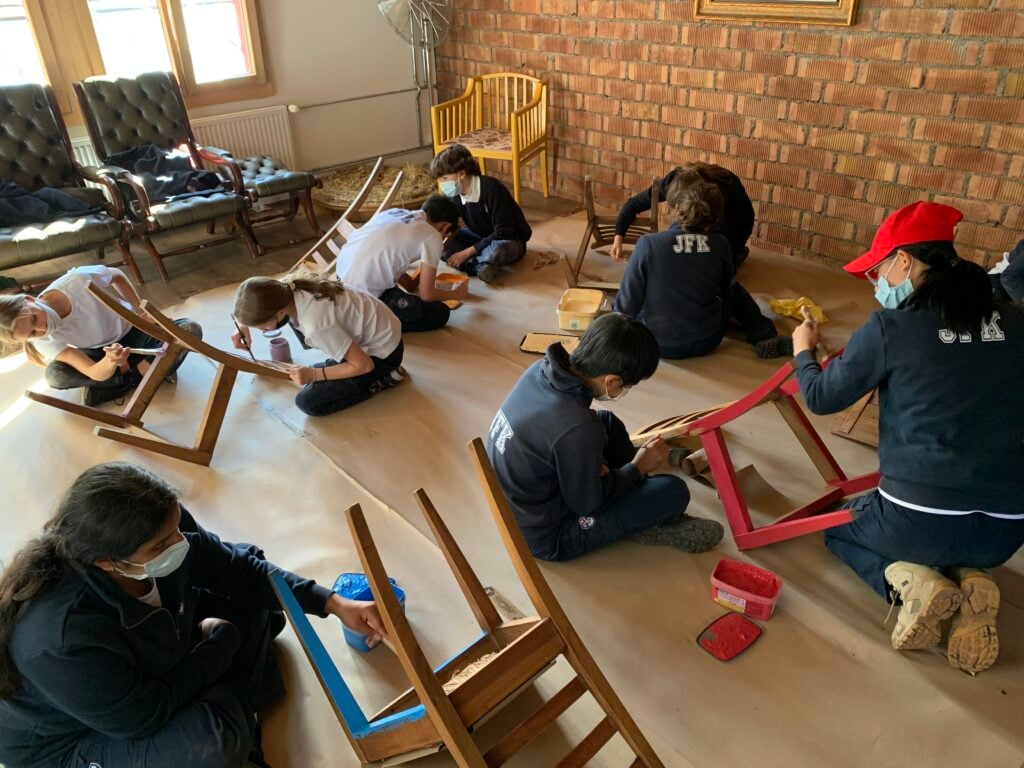
Votre Cercle de Vie’s eco-hotel project provides students with hands-on learning experiences in sustainable living, including economy, construction, design, energy systems, and more.
“We hope our involvement in such development projects inspires other schools to seek real-world learning and problem-solving opportunities beyond the traditional classroom setting. We believe that even small actions can significantly impact, and it is essential to recognise this potential.”
Stephanie Walmsley, Head of Middle School at John F Kennedy International School, Switzerland.
What is outdoor education?
Outdoor Education is a complex concept with multiple approaches, and there is little consensus among researchers, teachers, and educators. However, examining a few definitions makes the concept clearer and more straightforward.
Donaldson and Donaldson (1958) define Outdoor Education as “education in, about, and for the outdoors”, which encompasses learning in any outdoor environment, teaching any cultural and environmental aspect, and developing knowledge, skills, and attitudes about the world. However, Fagerström (2012) argues that this definition is limited as outdoor learning also encompasses other academic, personal, and social objectives.
Outdoor education is a type of experiential learning primarily in outdoor environments (Ford, 1986). It differs from summer camp or day camp as they are school-directed activities outside of the school building and include all curriculum areas, such as art, language arts, maths, physical education, social studies, music, and science.
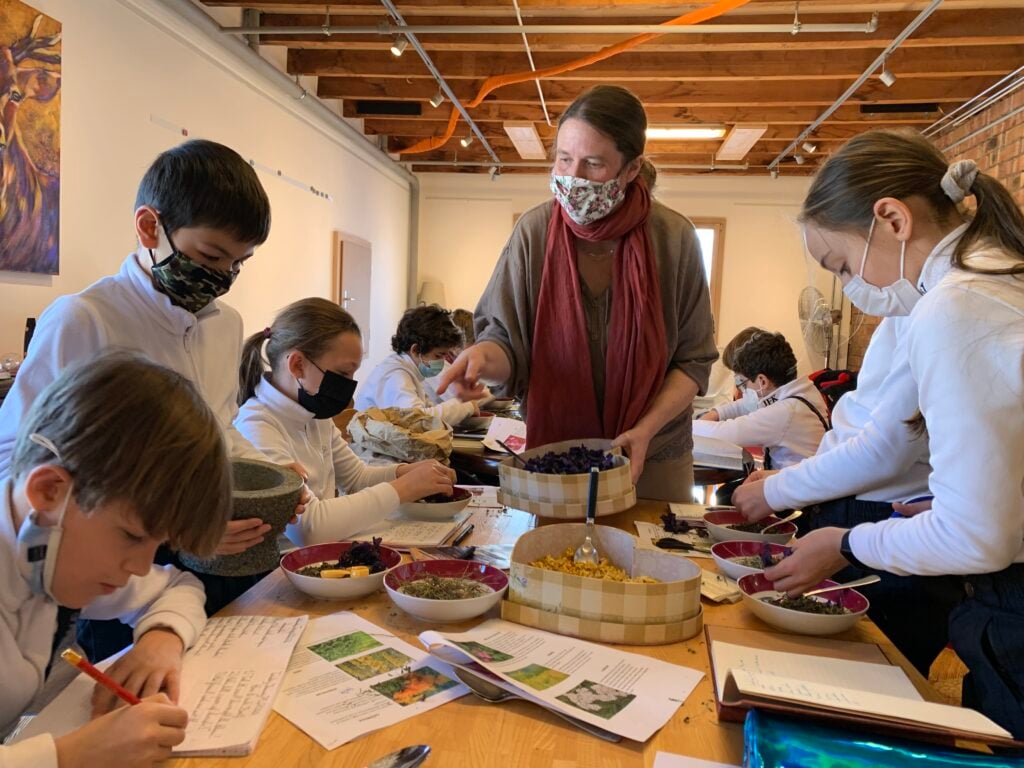
Many educators recognise the benefits of outdoor education, as it can provide students with unique opportunities to learn in a direct and hands-on way and promote physical activity (Fiskum & Jacobsen, 2012).
Outdoor education constantly evolves, and cultural influences shape the concept in different regions. At JFK, our educators have noticed that Sweden, Slovenia, Norway, and Switzerland have unique approaches to Outdoor Education. For example, Switzerland strongly emphasises outdoor learning as a part of the culture and is considered a way of life. The country’s stunning Alps also provide an ideal location for outdoor learning.
“JFK aims to create a meaningful outdoor learning program that utilises the school’s natural and alpine settings. To enhance their curriculum, the program aims to connect students to their environment and incorporate various learning strategies such as experiential, collaborative, inquiry-based and project-based learning.”
Mr Breogán Gómez, Outdoor Education Coordinator at John F Kennedy International School, Switzerland.
Linking Outdoor Education to Sustainable and Biodiversity Projects and Industry
The Votre Cercle de Vie project was developed over 14 years by Esther and Nicolas Mottier and their community. It aimed to create a more sustainable world by addressing societal issues and calling for change.
The Votre Cercle de Vie project encompasses a traditional biodynamic family farm, two organic stores, two apartments for holiday rental, a naturopathic practice, and a second-hand shop. What sets it apart is the opportunity to have unique experiences in an innovative and atypical building surrounded by farm animals and outdoor and indoor gardens.
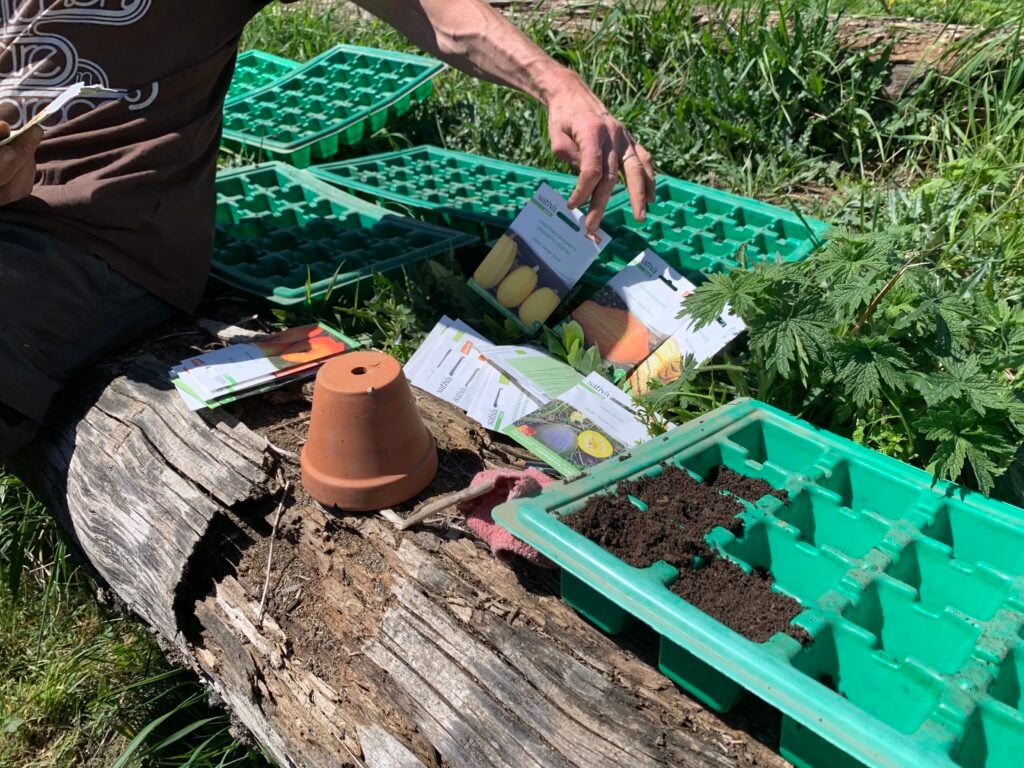
The Votre Cercle de Vie project is an eco-farm-hotel featuring organic architecture, low-tech energy and water management innovations, and an emphasis on the circular economy. The hotel generates its own energy, uses biogas from the barn for cooking, and treats wastewater for consumption. The kitchen uses organic, local, and seasonal products from the farm. It is a pioneering concept in Switzerland and is a hub for meetings, exchanges, and discussions on transitioning to a sustainable economic model. It is a high-end building offering hotel services and interconnects with the agriculture, health, and education sectors.
The Votre Cercle de Vie project aims to create a unique, sustainable and educational experience for guests through a connection with nature and monthly workshops and activities. These include collaborations with students from JFK International School, held at the biodynamic farm and second-hand store.
The goal is for guests to have an enriching experience connecting with nature and apply what they learn daily. Votre Cercle de Vie collaborates with schools and companies that share their values and vision of an ecological transition. Through activities, they aim for students and business managers to be active participants, observing and applying what they learn in their daily lives.
Connecting people, particularly children and business leaders, to nature is crucial. Votre Cercle de Vie aims to change this by fostering a deeper understanding and emotional connection to the earth through activities and projects.
Votre Cercle de Vie has seen first-hand that being on a biodynamic farm provides a unique opportunity for discovery, education and overall growth in terms of physical, cognitive and emotional well-being.

The biodynamic farm provides a unique environment for discovery, learning, and overall well-being. The personal and welcoming atmosphere allows children to participate in meaningful activities and gain positive experiences. These experiences include milking, caring for animals, and planting and harvesting fruits and vegetables. It is an ideal environment for promoting interdisciplinary learning and the development of holistic perspectives.
This project combines education and other sectors to find solutions for climate and biodiversity protection. It connects institutions and organisations supporting the ecological transition, allowing for exchanging knowledge and best practices. This interaction between students and companies promotes interest in and awareness of environmental issues.
Votre Cercle de Vie has gained recognition and interest after the release of the documentary film “Le Pari d’Esther” in 2021 and is regularly invited to share the concept at events and conferences. Recently, the project received the “Hotel Innovation Award” from GastroSuisse and the Swiss Hotel Credit Association.
JFK International School and Votre Cercle de Vie have joined forces to create an educational program that combines sustainability and outdoor education for students. To learn more about how JFK has integrated this program with Votre Cercle de Vie, please contact Mrs Stephanie Walmsley at st*******@*fk.ch.
